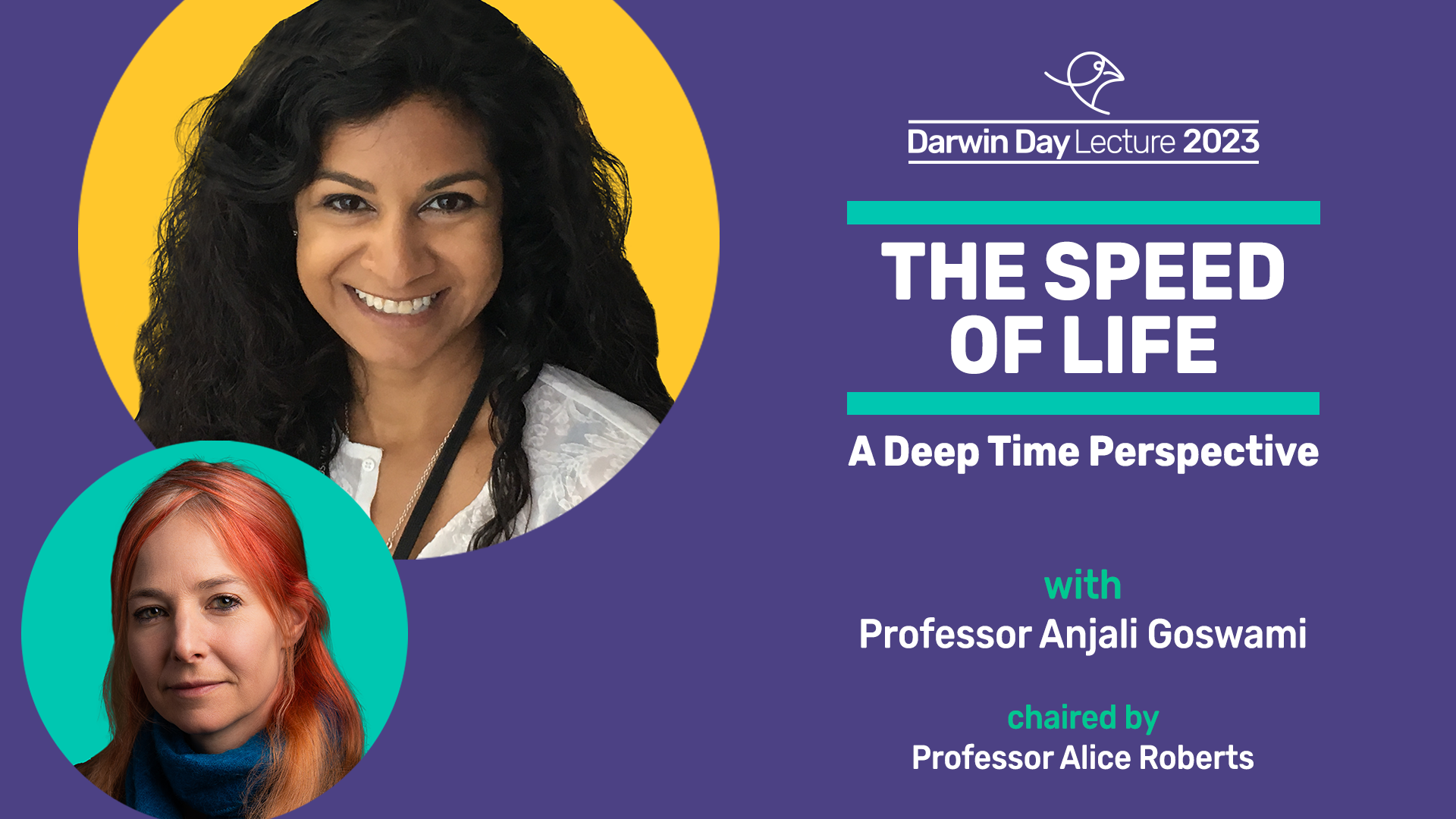
Professor Alice Roberts photo credit: David Stevens
Wednesday 8 February 2023
19:30–21:00
Conway Hall
25 Red Lion Square, London, WC1R 4RL
OR
Online
The Speed of Life: A Deep Time Perspective
Why is evolution seemingly a story of fits and starts, with long periods of relative stability interrupted by rapid transitions? What allows some species to survive and quickly exploit new opportunities, while others are consigned to the fossil record? Why do some groups diversify into thousands of species, while others potter along at small numbers for millions of years? Why do the same forms evolve over and over again in different groups, at different times, and in different places, while many hypothetical forms never evolve at all? Why, in essence, has life on Earth evolved the way that it has?
With data from thousands of extinct and living vertebrate species representing hundreds of millions of years of evolutionary history, we are now beginning to understand the most critical factors directing the trajectory and tempo of evolution. Evolutionary paths in many ways are as diverse as life itself, but commonalities abound in how species respond to changes in their world, with characteristics such as social behaviour, herbivory, and metamorphosis seeming to speed up the pace of evolution.
Yet, the fossil record also demonstrates that there are few rules and even fewer winners in global biotic collapse, and that with great change comes great unpredictability….
The Darwin Day Lecture explores humanism and humanist thought as related to science and evolution, Charles Darwin, or his works. The Darwin Day medallist has made a significant contribution in one of these fields. The lecture and medal are named and held to mark the annual global celebration of the birth of Charles Darwin, held every February.
About Professor Anjali Goswami
Professor Anjali Goswami is a Research Leader in Palaeobiology and Dean of Postgraduate Education at the Natural History Museum and an Honorary Professor of Palaeobiology at University College London. She currently serves as President of the Linnean Society of London, the first person of colour elected to this role in its 235-year history. Anjali completed a joint BSc with High Honours in Geological and Biological Sciences from the University of Michigan and a PhD in Evolutionary Biology from the University of Chicago, before moving to the UK to take up a US National Science Foundation research fellow at the NHM. She then spent ten years as a faculty member first at the University of Cambridge and then University College London before returning to the NHM in 2017.
Anjali’s expertise is in vertebrate evolution and development, particularly using high-resolution 3D images of specimens to quantify and reconstruct the evolution of biodiversity and understand how development, ecology and large-scale environmental effects have shaped animal evolution through deep time. She has published more than 130 scientific articles on the evolution of different groups from insects to dinosaurs, but her main interest is in the evolution of mammals. She has searched for fossils all over the world, from Svalbard to Madagascar, and currently leads expeditions in Argentina and India. Anjali also created and manages Phenome10k, a free online database for 3D biological images for research and education.
About Professor Alice Roberts
Professor Alice Roberts is Vice President of Humanists UK. She is Professor of Public Engagement in Science at the University of Birmingham, Director of Anatomy for the NHS Severn Deanery School of Surgery, and holds honorary fellowships at Hull, York Medical School, and the University of Bristol.
She is an honorary fellow of the British Science Association, a member of the Advisory Board of the Cheltenham Festival of Science, Patron of the Association of Science and Discovery Centres, and a member of the Council of the British Heart Foundation.
She combines her academic career with one as a science presenter on television. She has appeared as a human bone specialist on Channel 4’s Time Team and in various projects on BBC2, including Coast, Don’t Die Young, The Incredible Human Journey, Wild Swimming, Digging for Britain, Horizon, and Origins of Us.
